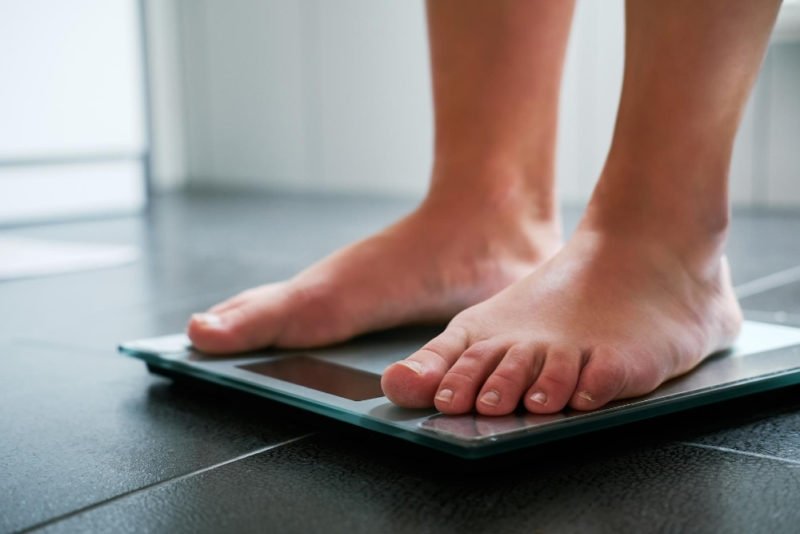
I’m often asked what “non-diet” actually means, both in general terms, and specifically when a dietitian or other healthcare provider describes their approach as “non-diet” or “anti-diet.” What is a non-diet approach, and is non-diet weight loss really a thing?
These are excellent questions, because these terms (“non-diet” more than “anti-diet,” I think) are often misrepresented, either intentionally or accidentally. I once feel into the latter camp, I’m afraid. Let me start with what it means to be non-diet or have a non-diet approach, and then I’ll talk about how these ideas may get twisted into something else.
Along the way, I’ll also talk about how talking about a “non-diet” approach feels a little different now in an age when we’re being bombarded with articles and TV specials about “miracle” weight loss drugs.
The spirit of “non-diet”
While my exact words may differ slightly from what another non-diet dietitian might say if you asked them this question, I define “non-diet” as not setting my clients on a path where they are intentionally trying to shrink their bodies or change their shape. I don’t support counting of calories or fat grams or carbs or points in the interest of altering body size or shape, or of trying to look more muscular.
This includes not intentionally pursuing weight loss, but this doesn’t mean that I refuse to discuss the desire for weight loss, because the pressure is real — from society, from healthcare providers, from family, from ourselves. (“I know dieting has never resulted in anything good for me, but I still feel the urge to try just one more time.”) I want to provide a safe space to discuss these things.
I also don’t support rigid diets in the name of health where they are not necessary. For example, I don’t support rigid “clean eating” diets or the “autoimmune protocols” that are available wherever books are sold despite not being based on actual scientific evidence. This doesn’t mean I won’t help someone eat in an evidence-based way to support a diagnosed health condition or risk factor, such as pre-diabetes or irritable bowel syndrome.
In fact, I actively help clients break away from rigid diets and eating patterns. With some clients, that means breaking up with weight loss diets. For others that means healing from orthorexia (an unhealthy obsession with eating healthfully). That doesn’t mean health doesn’t matter — it does for all my clients. But there are many ways to care for health that don’t require manipulating our bodies or maintaining an obsessive relationship with food and physical activity.

What gets portrayed as a “non-diet” approach?
As I mentioned, I didn’t aways practice this way. In fact, for more than three years, I practiced what I called a “non-diet” approach to weight management. I now understand that’s not actually a thing, because the intentional pursuit of weight loss is the very definition of “diet” (setting aside the broader definition of “diet” as in “how we eat”).
When I helped patients do “non-diet” dieting, I didn’t ask them to count calories, carbs, fat, etc. I did help them make changes changes — such as being “mindful” about portion sizes — with the express goal of losing weight, and I weighed many of them every time I saw them. My increasing discomfort with the fact that I was contributing to the obsession with a number on a scale lead me to make some career changes.
The idea of “non-diet” is often misappropriated by “wellness culture.” The most common manifestation of this is a strict diet plan that purports to support “optimal health” or heal a nebulous set of symptoms that are allegedly due to an autoimmune response, food sensitivities, leaky gut or something similar.
I’m thinking of one popular protocol (which has a few books to its name) that specifically states that it’s not intended as a weight loss diet, yet they also say that many people do lose some weight. I’m pretty sure that every client of mine who has ever tried it in the past did so with the intent of losing weight, even if their primary intent was “health.”
Sometimes, the co-opting of “non-diet” is far more blatant. Many weight-loss apps and programs say things like “[Name of app] is not a diet — dieting shouldn’t be painful.” Well, these are diets, and I’ve had clients who started working with me because an app or program claiming to be “non-diet” re-triggered their binge eating or started to send them back down a scary path to food and exercise obsession. Fortunately, they had the self-awareness to notice the warning bells going off in their heads.
Now, we have pharmaceutical companies co-opting “non-diet” in a new way — “Diets don’t work, it’s not your fault, take our drug instead.” But these drugs aren’t benign. They strip away appetite, they can make it hard to eat enough to make nutritional needs, and they can have even more serious side effects.

If not dieting, then what?
Diet culture and wellness culture are so entangled that, really, it’s hard to separate them. The introduction of new weight loss drugs has made this more complicated. This just furthers the idea that the number one thing you can do for your health is to lose weight, even if you tell yourself the changes you make aren’t really about losing weight, they’re about health.
This is something that also trips up many people who start dabbling in Intuitive Eating. In fact, to my great dismay (and to the even greater dismay of the two dietitians who developed the Intuitive Eating model), there are dietitians and other healthcare practitioners who actually market themselves as offering weight loss through intuitive eating.
If you ever witness this, run the other way. It means they are not actually certified in Intuitive Eating, because you cannot practice intuitive eating while pursuing weight loss.
Now, many of my clients who come to me to learn Intuitive Eating do still desire weight loss. Often, they are in the process of breaking up with dieting, but are still a bit on the fence. Some of them are considering a weight loss drug, often because their doctor is pushing them in that direction.
Once diet culture gets its tenterhooks in you, it can take some time to become truly free of it. Sometimes, they feel quite desperate for diet culture thoughts, feelings and urges to just go away. I get it. And I’ve been there.
Related posts:

What if you want weight loss AND food peace?
I remind my clients who are struggling with diet thoughts that we can’t control our thoughts and feelings, but we can choose to not act on them, and we can develop strategies to riding the wave of a diet urge until it fades away. What’s important is that you don’t pursue weight loss while trying to become an intuitive eater. This is super important for two reasons:
- It’s impossible to practice the principles of intuitive eating (including honoring your hunger, feeling your fullness and making peace with food) if you are focused on the scales, or on how many calories or carbs are in what you just ate.
- Intuitive Eating helps the body find it’s natural weight range, and that may be higher, lower, or about the same, compared to where someone started. This generally depends on the degree to which someone was restricting (due to dieting or a restrictive eating disorder) or eating in excess of their body’s fullness and satisfaction cues (due to binge eating, excessive emotional eating, or simply not being able to listen to their body).
I never promise weight loss with intuitive eating, for those reasons I just stated. I have observed #1 and #2 in my clients (although my clients generally stop weighing themselves, so it’s hard to be precise about any weight changes). What they do universally gain is a greater sense of ease with food, and they are able to enjoy eating healthfully in a balanced way.
For some, that means being less rigid, being OK with good enough rather than striving for “perfect.” For others that means actually eating more nutritiously, because for the first time they are listening to what their body wants, rather than just grabbing whatever’s handy. That’s much easier when you let go of the idea of “good” and “bad” foods so you’re making choices from a less emotionally charged mindset.

The non-diet bottom line, and the importance of consent
To sum up, if you ever see “non-diet” used in association with restricting calories, carbs, fat, points (or some similar measure), or with altering body size and shape, then it is not “non-diet”!
I also want to reiterate that I don’t judge people for wanting to lose weight (given the society we live in and the diet culture waters we swim in). Neither would any true non-diet dietitian worthy of that term. It’s just that there are better, more holistic ways to approach true physical and mental/emotional health, and we help people find those ways.
I also support fully informed consent-based decision making whenever the topic of weight comes up in connection to health, especially now with so many doctors eager to prescribe weight loss drugs, and so much hype about these drugs being a “miracle” (they aren’t).
What are potential risks and likely side effects? Do we know, based on the evidence, that losing weight would actually produce a desired health outcome, or is the push for weight loss based on an assumption that if you don’t lose weight you will at some point in the unforeseen future develop a health problem (something that could be true for anyone, of any weight). Are you willing to be on the drug forever? What would that mean financially and in terms of the quality of a life where it may feel hard to even eat? So many questions, and I fear that in many cases, they aren’t being fully addressed.
Disclaimer: All information provided here is of a general nature and is furnished only for educational purposes. This information is not to be taken as medical or other health advice pertaining to an individual’s specific health or medical condition. You agree that the use of this information is at your own risk.
Hi, I’m Carrie Dennett, MPH, RDN, a weight-inclusive registered dietitian, nutrition therapist and body image counselor. I offer compassionate, individualized care for adults of all ages, shapes, sizes and genders who want to break free from eating disorders, disordered eating or chronic dieting. If you need to learn how to manage IBS symptoms with food, or improve your nutrition and lifestyle habits to help manage a current health concern or simply support your overall health and well-being, I help people with that, too.
Need 1-on-1 help for your nutrition, eating, or body image concerns? Schedule a free 20-minute Discovery Call to talk about how I can help you and explore if we’re a good fit! I’m in-network with Regence BCBS, FirstChoice Health and Providence Health Plan, and can bill Blue Cross and/or Blue Shield insurances in many states. If I don’t take your insurance, I can help you seek reimbursement on your own. To learn more, explore my insurance and services areas page.
 Print This Post
Print This Post






